QOTD: Do You Actually Care About Chinese Imports?

Following our coverage of the Lincoln Nautilus Hybrid, reader feedback seemed overwhelmingly focused on the vehicle being manufactured in China. This was interesting because the article dealt exclusively with updates to the vehicle, which is technically still a product of North America.
But Ford Motor Co. has confirmed that the next-generation Nautilus will indeed be imported from China so that the Canadian facility currently responsible for U.S. volume can be transitioned into an electric-vehicle plant.
The midsize crossover is currently produced at Ford’s Oakville Assembly Plant in Ontario, Canada. However, the automaker had announced an investment of $1.8 billion CAN ($1.34 billion USD) to prep the site for all-electric vehicles.
While the Lincoln Nautilus isn’t sublimely popular, averaging around 25,000 sales in the U.S. annually, having Oakville Assembly down means Ford had to come up with something and it elected to pull China out of the bullpen — setting the SUV up to become Ford’s very first Chinese import.
In some respects, this is a shrewd move. General Motors managed to make inroads on the Asian market by selling premium-badged products to Chinese customers that viewed brands like Cadillac and Buick as a cut above. Localizing some of its production there similarly helped GM build good faith in what’s now the world’s largest automotive market.
Ford has struggled by comparison. Though it’s been taking action that has helped improve Chinese sales figures in recent years — the worst period of the pandemic notwithstanding.
But there are risks involved. Tensions between China and the U.S. have been rising and Americans, beleaguered by a weakening economy, may not look favorably on a product they would have preferred to see produced locally. Canadians at least have the benefit of knowing they’re getting an upgraded factory out of the deal.
Everyone seems to be talking about it and trying to decide whether or not this is a smart play for Blue Oval. But, while the peanut gallery gripes, CNBC pointed out the reality of the situation:
Importing a vehicle from China to the U.S. is not unprecedented but can draw public and political criticism or backlash, especially when tensions between the two countries are high.
Most notably, General Motors has been criticized for importing its Buick Envision crossover from China to the U.S. since 2016. The Detroit automaker has sold more than 200,000 of the China-made vehicles, which American union officials have called the “Invasion” and “a slap in the face.”
Importing a vehicle from overseas to the U.S. can make good business sense, however, for a company such as Ford.
“In this case, it’s a good use of resources,” said Stephanie Brinley, associate director of research at S&P Global Mobility. “Without importing, Lincoln does not get the product, and the brand needs products between now and when its EVs arrive.”
Ford has offered up a similar explanation, stating that Lincoln is a global brand focused on growth. It already makes the Nautilus in China and the vehicle sells nearly as well there as it does here. A spokesperson from the company said that it makes sense to localize production as it provides an opportunity “to gain manufacturing efficiencies and retool our Oakville facility to get ready to build our next generation EVs.”
Meanwhile, Lincoln’s U.S. volumes are nowhere near the highs of the 1990s. The last few decades have shown the automaker struggling in the home market, with some modest improvement after 2014. But it’s not exactly a comeback and the company is probably thinking there won’t ever be one unless it can sell more vehicles in other parts of the world.
That puts Lincoln in a less-than-enviable position. But it doesn’t mean consumers are going to care in the slightest. People seem to be genuinely upset that Ford plans on importing the Nautilus and it may ultimately hurt Ford’s bottom line on the domestic market. Customers are already annoyed with lackluster reliability and ever-expanding MSRPs. It may be unwise to give them something else to complain about.
In the interim, we expect Ford to continue reminding everyone that it’s still technically the number-one automaker in regard to vehicles assembled and hourly workers employed inside of North America.
The question for you is how much that really matters. Are you someone that would think twice about buying from a domestic manufacturer that’s importing vehicles (even if it’s just one) from China? Or is the Chinese connection an irrelevant factor when determining your next ride?
[Image: Ford Motor Co.]
Become a TTAC insider. Get the latest news, features, TTAC takes, and everything else that gets to the truth about cars first by subscribing to our newsletter.

A staunch consumer advocate tracking industry trends and regulation. Before joining TTAC, Matt spent a decade working for marketing and research firms based in NYC. Clients included several of the world’s largest automakers, global tire brands, and aftermarket part suppliers. Dissatisfied with the corporate world and resentful of having to wear suits everyday, he pivoted to writing about cars. Since then, that man has become an ardent supporter of the right-to-repair movement, been interviewed on the auto industry by national radio broadcasts, driven more rental cars than anyone ever should, participated in amateur rallying events, and received the requisite minimum training as sanctioned by the SCCA. Handy with a wrench, Matt grew up surrounded by Detroit auto workers and managed to get a pizza delivery job before he was legally eligible. He later found himself driving box trucks through Manhattan, guaranteeing future sympathy for actual truckers. He continues to conduct research pertaining to the automotive sector as an independent contractor and has since moved back to his native Michigan, closer to where the cars are born. A contrarian, Matt claims to prefer understeer — stating that front and all-wheel drive vehicles cater best to his driving style.
More by Matt Posky
Latest Car Reviews
Read moreLatest Product Reviews
Read moreRecent Comments
- Jalop1991 In a manner similar to PHEV being the correct answer, I declare RPVs to be the correct answer here.We're doing it with certain aircraft; why not with cars on the ground, using hardware and tools like Telsa's "FSD" or GM's "SuperCruise" as the base?Take the local Uber driver out of the car, and put him in a professional centralized environment from where he drives me around. The system and the individual car can have awareness as well as gates, but he's responsible for the driving.Put the tech into my car, and let me buy it as needed. I need someone else to drive me home; hit the button and voila, I've hired a driver for the moment. I don't want to drive 11 hours to my vacation spot; hire the remote pilot for that. When I get there, I have my car and he's still at his normal location, piloting cars for other people.The system would allow for driver rest period, like what's required for truckers, so I might end up with multiple people driving me to the coast. I don't care. And they don't have to be physically with me, therefore they can be way cheaper.Charge taxi-type per-mile rates. For long drives, offer per-trip rates. Offer subscriptions, including miles/hours. Whatever.(And for grins, dress the remote pilots all as Johnnie.)Start this out with big rigs. Take the trucker away from the long haul driving, and let him be there for emergencies and the short haul parts of the trip.And in a manner similar to PHEVs being discredited, I fully expect to be razzed for this brilliant idea (not unlike how Alan Kay wasn't recognized until many many years later for his Dynabook vision).
- B-BodyBuick84 Not afraid of AV's as I highly doubt they will ever be %100 viable for our roads. Stop-and-go downtown city or rush hour highway traffic? I can see that, but otherwise there's simply too many variables. Bad weather conditions, faded road lines or markings, reflective surfaces with glare, etc. There's also the issue of cultural norms. About a decade ago there was actually an online test called 'The Morality Machine' one could do online where you were in control of an AV and choose what action to take when a crash was inevitable. I think something like 2.5 million people across the world participated? For example, do you hit and most likely kill the elderly couple strolling across the crosswalk or crash the vehicle into a cement barrier and almost certainly cause the death of the vehicle occupants? What if it's a parent and child? In N. America 98% of people choose to hit the elderly couple and save themselves while in Asia, the exact opposite happened where 98% choose to hit the parent and child. Why? Cultural differences. Asia puts a lot of emphasis on respecting their elderly while N. America has a culture of 'save/ protect the children'. Are these AV's going to respect that culture? Is a VW Jetta or Buick Envision AV going to have different programming depending on whether it's sold in Canada or Taiwan? how's that going to effect legislation and legal battles when a crash inevitibly does happen? These are the true barriers to mass AV adoption, and in the 10 years since that test came out, there has been zero answers or progress on this matter. So no, I'm not afraid of AV's simply because with the exception of a few specific situations, most avenues are going to prove to be a dead-end for automakers.
- Mike Bradley Autonomous cars were developed in Silicon Valley. For new products there, the standard business plan is to put a barely-functioning product on the market right away and wait for the early-adopter customers to find the flaws. That's exactly what's happened. Detroit's plan is pretty much the opposite, but Detroit isn't developing this product. That's why dealers, for instance, haven't been trained in the cars.
- Dartman https://apnews.com/article/artificial-intelligence-fighter-jets-air-force-6a1100c96a73ca9b7f41cbd6a2753fdaAutonomous/Ai is here now. The question is implementation and acceptance.
- FreedMike If Dodge were smart - and I don't think they are - they'd spend their money refreshing and reworking the Durango (which I think is entering model year 3,221), versus going down the same "stuff 'em full of motor and give 'em cool new paint options" path. That's the approach they used with the Charger and Challenger, and both those models are dead. The Durango is still a strong product in a strong market; why not keep it fresher?



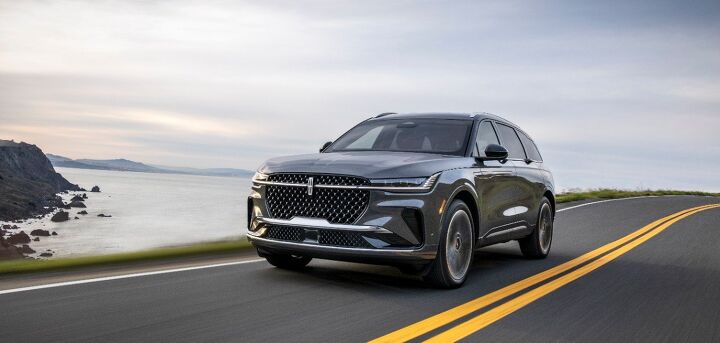
















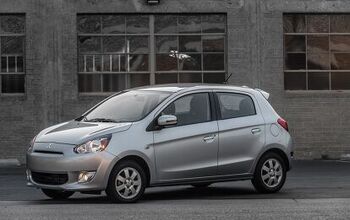
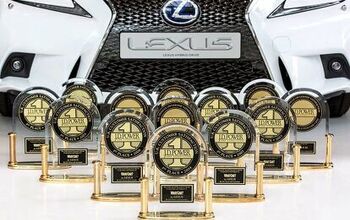
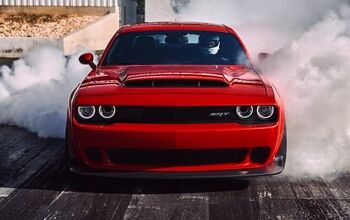
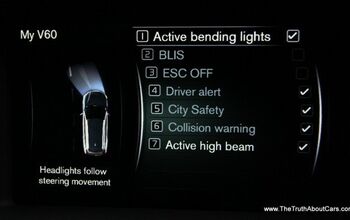










Comments
Join the conversation
IMO, it has nothing to do with anything but profits. I lost all faith in anything Ford puts out there after the Powershift transmission issue (A family member got double fisted without lube by Ford on that one) so after that and Ford's continuing quality issues (Bring back the old motto with a variation: At Ford, Quality is Job NONE!). Ford is clearly unwilling to compete with Toyota and Honda, who are still selling cars. Less, of course but look around and all the Camrys, Accords, Corollas and Civics still selling. So many still on the road. How many Fusions are still out there? How about the Focus?
The level of corporate ignorance is staggering. Ford's screw ups are legendary. I remember an interview with some idiot who was in charge of branding a number of years ago when Ford decided that every car's name would start with an "F", except for the Mustang and Thunderbird, of course and every truck name would start with an "E". The branding moron was quoted in that interview that they didnt understand the name "Camry" and who would actually buy a car with that name?
How about the third generation Taurus? I refer to it as the "SupposiTaurus" as it really resembled something that was forcibly pushed through a sphincter. Ford, in their finite wisdom, removed standard features from the previous generation and raised the price. When it started losing sales to the Camry and Accord, dealers said to the "silver tower" what was happening and the corporate response was "No, it isnt".
Welcome to the Camry unseating the Taurus as the best selling car in the US.
Ford and GM (I have no experience with Stellantis/Chrysler so I will not comment on them) both dont give a damn about American jobs, much like many other American manufacturers. Its all about the profits.
I wanted to buyAmerican. I’ve had only foreign cars for many years [2 decades] I didn’t buy a Buick because it was made in China. I bought a Lincoln because it was made here.